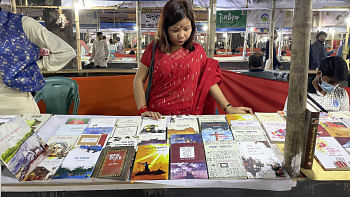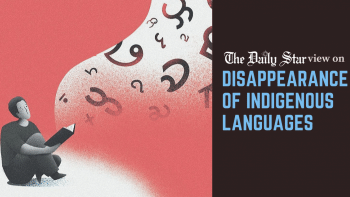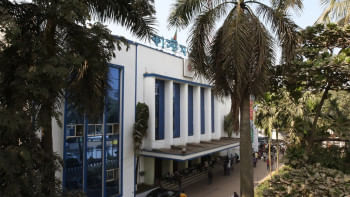A mockery of education in indigenous languages

It is alarming to learn of the plight of the project to provide primary education in mother tongue for indigenous children in line with the Chittagong Hill Tracts Peace Accord 1997. Reportedly, despite the passage of decades and the 2010 education policy that paved the way for textbooks in five indigenous languages, significant barriers remain. The main issue seems to be the lack of teachers proficient in indigenous languages. Many teachers are struggling to utilise the curriculum due to inadequate training and a lack of training modules and other resources. Indigenous language subjects have also been relegated to the sidelines, excluded from regular class schedules and student evaluations.
Against this backdrop, it is hardly surprising that children are losing interest in education in their mother tongues. The frustration caused by this state of affairs—with one parent fuming, "How can teachers who do not know alphabets teach children the language?"—contrasts the air of positivity and joy that arose when the indigenous textbooks were published and distributed in 2017. Seven years on, that positivity is all but lost, thanks to the negligence and lack of proper initiatives by the relevant authorities.
Currently, students from pre-primary to class three are eligible for the textbooks. Since most ethnic languages do not have alphabets, the government currently has no plan to publish textbooks in languages other than the designated five—Chakma, Marma, Tripura, Garo, and Sadri. But simply designing and distributing free textbooks is not enough, as the experience of many CHT schools has made abundantly clear. This calls for a critical rethink of the mother-tongue project and the vision guiding it. We must ask: should we be content with the mere spectacle of linguistic diversity, or should we see it to fruition?
Language is not merely a means of communication but a repository of cultural identity and heritage, so the importance of indigenous students learning and communicating in their mother tongues cannot be emphasised enough. We, therefore, urge the government to undertake robust teacher training programmes and properly integrate indigenous language subjects into mainstream curricula to make the project successful.


 For all latest news, follow The Daily Star's Google News channel.
For all latest news, follow The Daily Star's Google News channel. 










Comments